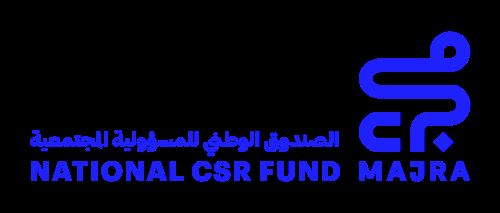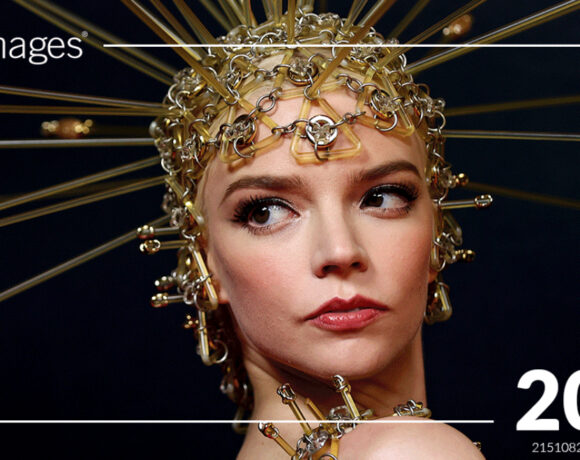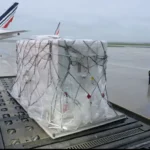The results of the second cycle of the ‘Future Science Challenge’

Dubai, UAE, 24 February 2023: Hamdan bin Rashid Center for Giftedness and Innovation, a part of Hamdan bin Rashid Foundation for Distinguished Academic Performance, organized the events of the second cycle of the ‘Future Science Challenge’, which aimed to provide an opportunity for talented students in the Gulf Cooperation Council countries to showcase their creative abilities and enhance their skills and talents.
HE Hamid Mohammed Al Qatami, Chairman of the Board of Trustees of Hamdan bin Rashid Al Maktoum Foundation for Distinguished Academic Performance, commenced the ceremony and said in his speech addressing the audience: “We are pleased to conclude the ‘Future Science Challenge’, which has achieved its objectives in exploring and highlighting excellent examples of students, with their knowledge, scientific skills, and excellent performance. The successful outcome of the competition is undoubtedly rewarding for us at Hamdan bin Rashid Al Maktoum Foundation for Distinguished Academic Performance, which, under the guidance of its leader, Sheikh Rashid bin Hamdan Al Maktoum, is keen on organizing these Gulf scientific competitions that highlight the creative student skills. This competition is part of our vision to achieve the highest goals for which this foundation was established by late Sheikh Hamdan bin Rashid Al Maktoum – may God rest his soul – which is to contribute to supporting education, empowering students and educational system elements to make education an active force in sustainable development.”
In his comment on the competition, His Excellency Dr. Khalifa Al Suwaidi, Secretary-General of Hamdan bin Rashid Al Maktoum Foundation for Distinguished Academic Performance, said: “It is our pleasure at Hamdan bin Rashid Al Maktoum Foundation for Distinguished Academic Performance to organize this competition, which comes within the framework of efforts to develop and enhance the quality of education, nurture the talented and the gifted, and promote learning in the fields of artificial intelligence and the Internet of Things. It also aims to link technology with the social aspect through modern technologies, and prepare students for the future, especially as artificial intelligence has entered many vital fields such as environmental sustainability, education, business, sciences, medicine, and many more. We are confident that this competition will play a role in supporting outstanding students and preparing them for future professions.”
HE Al Suwaidi also added that the results of the competition, in which many talented individuals from GCC countries, won in their categories, reflect an advanced educational awareness of the data and developments in various scientific fields.
The competition, which targeted the junior’s category from 10 to 13 years old in addition to the professional’s category from 14 to 17 years old, was launched on October 27th of last year through a virtual ceremony broadcasted on the Foundation’s social media platforms. The winners were announced at the closing ceremony held on Thursday evening (February 23, 2023).
The participating students were among many outstanding pupils who were interested in the domains of artificial intelligence and the Internet of Thing and were nominated by nine sponsors of talent in Gulf countries which are Emirates Schools Establishment, Hamdan bin Rashid Al Maktoum Foundation for Distinguished Academic Performance and Sharjah Education Center from the UAE, Ministry of Education from Kingdom of Bahrain, Ministry of Education and the King Abdul Aziz and His Companions Foundation for Giftedness and Creativity from the Kingdom of Saudi Arabia, in addition to Ministry of Education from Qatar and Sabah Al-Ahmad Center for Giftedness and Creativity from Al Kuwait and Ministry of Education of the Sultanate of Oman. Top of Form
Bottom of Form
The theme of the second cycle of the competition was ‘Smart Future’ and included various categories and fields such as energy, health care, smart homes, smart cities, industry, and others. The award categories also included the ‘Future Science Challenge’ category, the ‘Best Designer’ category, the ‘Best Innovator’ category, the ‘Best Engineer’ category, and the ‘Best Presenter’ category.
The award saw a record-breaking season with 308 teams registered on the competition platform and 252 teams were admitted including 630 students. 91 teams (236 students) from the United Arab Emirates and 100 teams (251 students) from the Kingdom of Saudi Arabia registered. In addition to the 23 teams (60 students) from the Kingdom of Bahrain, there were 26 teams (55 students) from Qatar, 10 teams (21 students) from the Sultanate of Oman, and 2 teams (6 students) from the State of Kuwait. They all exhibited considerable works and projects.
The projects participating in the competition were evaluated by a jury that included a group of professors and experts in the fields of artificial intelligence and the Internet of Things. The evaluation included five basic criteria: design ability, innovative thinking, technology and electronics, programming ability, and presentation and communication skills.
In the junior’s category, the Jazanline Team from Saudi Arabia won the ‘Best Designer’ award, where the team designed a city inspired by the future city of ‘The Line’ in Saudi Arabia, which relies on artificial intelligence, robots, and the Internet of Things in providing services such as safe entry to homes, safe waste removal, and others.
The Stem Challenger Team from Saudi Arabia won the prize for ‘Best Engineer’ for their innovative and integrated concept that autonomously waters plants and feeds animals based on their condition using machine learning and artificial intelligence methods. The Science Club Team from the State of Qatar won the ‘Best Innovator’ award for developing a smart shoe that allows parents to monitor their children’s location using Internet of Things technology and learn about their health conditions, such as their heartbeat and temperature. This team creatively integrates wireless technology with the smart shoe to provide parents with these benefits.
From the UAE, The Safe Shield Team, presented an automated system based on artificial intelligence to assist firemen put out fires as rapidly as possible and got the ‘Best Presenter’ award. The presentation stood out for its innovative approach to presenting the project.
The Fast Fix Mechanics Team from the Kingdom of Saudi Arabia won the ‘Future Science Challenge’ for this season. The young people succeeded in honing their programming and invention talents in this field, and despite their young age, they built an innovative model that serves as a sign language interpreter for people with determination using artificial intelligence and machine learning techniques.
In the professional’s category, The Qatar Tech 2022 Team from the State of Qatar won ‘Best Designer’ award for their work on a smart system for monitoring and securing beaches in Arab Gulf Countries. The system consists of three smart devices connected to the Internet of Things, including a robot boat, a smart beach tower, and a monitoring device and enables visitors to these beaches a safe experience.
The Planet Technology Team from Kingdom of Saudi Arabia, which designed, built, and programmed the “Ambulance Assistant” innovation, won the prize for ‘Best Engineer’. This system aids the ambulance team in locating the closest available bed by analyzing images using artificial intelligence from surveillance cameras in emergency rooms.
The Safety Team from the UAE got the ‘Best Innovator’ award for their system that uses artificial intelligence to identify and connect a car’s license plate to the student database at the school in order to shorten the time parents must wait to pick up their children from school.
The Smart Home Team from Bahrain won the prize for ‘Best Presenter’. The team demonstrated how to design and implement a smart home that is run by Internet of Things technology. They did this by presenting the project’s components in a well-organized manner, as well as how each component was created and programmed before the project took on its final form.
The Talent Academy Team from Kuwait and Students Serving the Country Team from Oman were both recognized by the jury as winners in recognition of their demonstrable efforts in a number of areas.
The Pro Star Team from Qatar was declared the winner of the ‘Future Science Challenge’ title for the second season. Their project includes an artificial intelligence-powered smart evacuation system for future buildings that can identify the presence of a fire and deliver statistical reports of the population of each building to security and safety personnel by examining surveillance camera photos.
HE Dr. Al Suwaidi said in his conclusion, “The ‘Future Science Challenge’ succeeded in promoting learning the principles of artificial intelligence and the Internet of Things by focusing on multi-disciplinary learning methodologies for gifted and outstanding students in various fields of science and technology. Students were able to present and share the stages of developing their projects with their colleagues. Through the virtual platform, students have learned about the most recent technologies, the fundamentals of artificial intelligence, smart boards, Internet of Things technology, and how to design smart projects. The platform also offered training materials and scientific projects that are specifically designed to be a practical reference for students.
Last Updated on 2 years by News Desk 2












